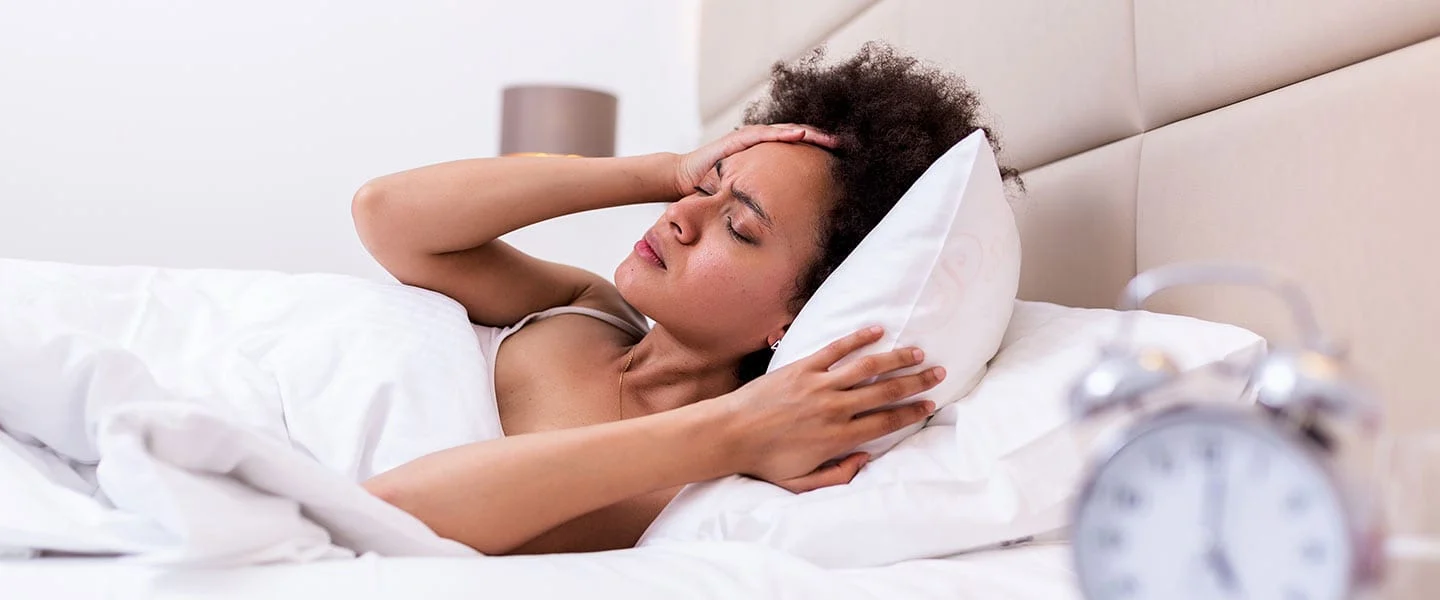The Link Between Sleep and Chronic Pain
 Studies have shown that problems with sleep and chronic pain can go hand and hand. It is not uncommon for people experiencing chronic pain
to have difficulty falling asleep or have disrupted sleeps. Getting enough sleep is important, but often it is the quality of sleep that
matters more. Therefore, it is imperative we address your sleeping patterns and habits as part of your pain management.
Studies have shown that problems with sleep and chronic pain can go hand and hand. It is not uncommon for people experiencing chronic pain
to have difficulty falling asleep or have disrupted sleeps. Getting enough sleep is important, but often it is the quality of sleep that
matters more. Therefore, it is imperative we address your sleeping patterns and habits as part of your pain management.
How does sleep contribute to your pain?
There is a reciprocal relationship between the sleep and pain. This means reduced quality and quantity of sleep the night before can result
in you becoming more sensitise to pain and ultimately experiencing more pain throughout the day. Vice versa, having pain throughout the day
and can contribute to a restless night’s sleep. Latest studies have shown the former of the relationship, the impact of sleep on pain, has
more effect. In order to sleep our nervous system has to calm down. People experiencing chronic pain, have a much more active nervous
system. This can interfere with how quickly you fall asleep and how deep a sleep you get.
How can I improve my sleep?
Establishing a routine – Get up and go to bed at roughly the same time each morning and night. Have a morning and
night routine where you do the same things in the same order. This helps the body learn to expect sleep and prepare for it.
 Your bed should only be used for sleeping – make the mental link between “bed” and “sleep” really
strong.
Your bed should only be used for sleeping – make the mental link between “bed” and “sleep” really
strong.
Unwind and relax - To fall asleep, your nervous system needs to calm down. This can be done by implementing calm
non-stimulating activities or relaxation techniques, such as deep breathing exercises.
Sleep hygiene - This simply means, managing those things that you do during the day that can affect sleep.
- Strive for a healthy diet and avoid caffeine, coffee, coke and chocolate 4 hours before bed
- Ensure that you get an adequate amount of physical activity during the day and avoid exercising 2-3 hours before bed
- Limit exposure to light and noise before bed
- Temperature
Seeking professional help
If you find that you have breathing related sleep problems, contact your GP. Psychologists and Clinical psychologists can help with sleep
management and can also assist with underlying mood and anxiety issues as well. It is also important you let our team of physiotherapist,
exercise physiologist and massage therapist know your sleep quality and quantity, as we do take these factors into consideration when
developing the treatment plans.
.svg)
.jpg)




